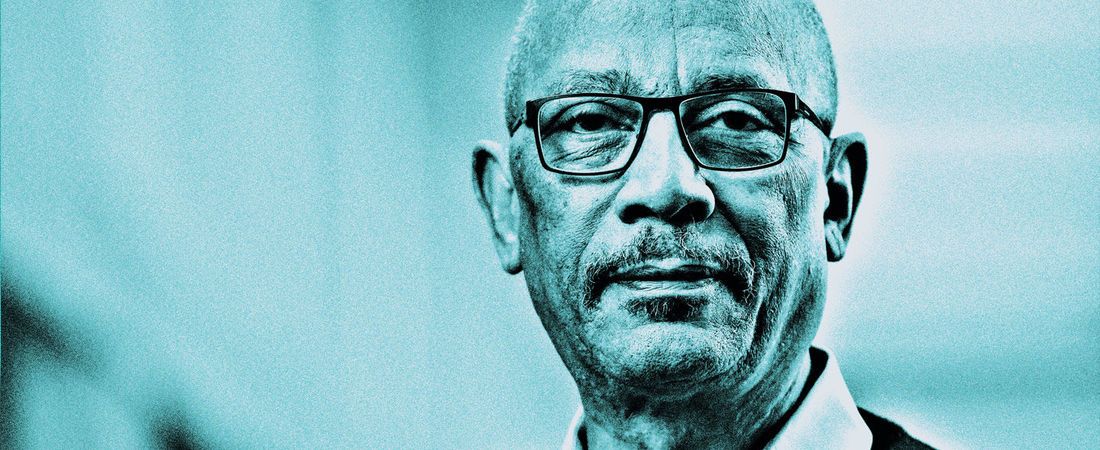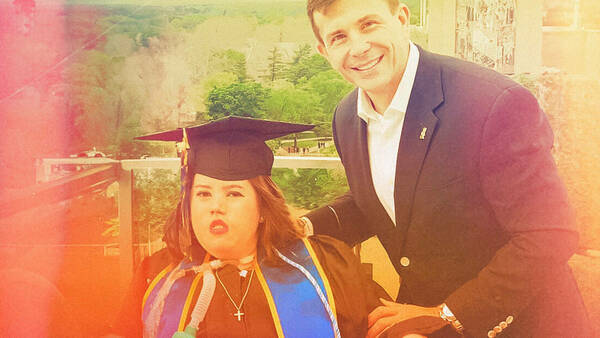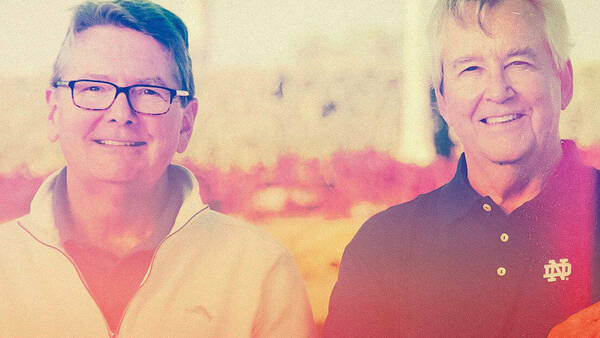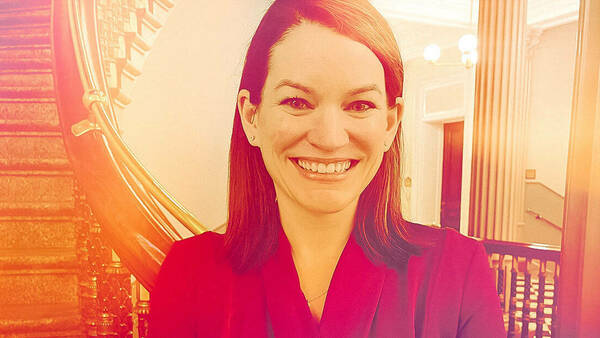Since graduating from Notre Dame, Frank Taylor ’70, ’74 M.A. has served the U.S. government for almost 50 years and traveled to more than 65 countries.
He helped the United States craft its counterterrorism policy following 9/11, and has worked to improve security in the the private sector.
And now, he is giving back to his alma mater as an educator who works with an emerging generation of peacebuilders.
The common thread for his long and distinguished career is what first drew him to Notre Dame: a desire to serve his country.
“This notion of how you continue to serve the nation in different roles at various times during a career,” he says, “has been something that has been very important to me.”
Taylor arrived on campus in the fall of 1966 to study government and international relations and joined the Air Force ROTC program. As an undergraduate, he navigated the challenges of life as a black student while pursuing an education that would shape his future path.
“When I look back on my undergraduate years at Notre Dame, this was not a campus that had seen many people of color,” he says. “It was not what I would consider a welcoming place for people of color. This was during a time of change in our country, so there were demonstrations at football games and lots of disruptive activity. But what was most important here was the quality education, which shaped who I became as an adult. It made me appreciate even more the value of coming here despite what the social circumstances might have been.”
That education, he says, came both in the classroom and through his ROTC training.
“I met Professor Peter Walshe, who introduced me to Africa and African area studies,” he recalls. “That became a life-long interest of mine, and led to my getting my first job in the Air Force as an analyst for the Middle East, Africa, and South Asia in the counterintelligence division. The Air Force recognized that background and skill, which got me into the counterintelligence division. The rest is history.
“I think ROTC was part of my formative leadership experience. For me it was leadership and exposure to people and things I hadn’t done before beyond campus. It really helped me to grow into the leader I think I’ve become.”
After returning to Notre Dame to earn his Master’s degree in 1974, Taylor began his long career of government service in the Acquisition and Analysis Division of the Office of Special Investigations’ Directorate of Counterintelligence, eventually moving up the ladder in counterintelligence in the Air Force. For his final active duty assignment, he worked as Commanding General for the Air Force Office of Special Investigations.
In 2001, President George W. Bush nominated him to be the Coordinator for Counterterrorism for the Department of State. In this role, he was responsible for implementing U.S. counterterrorism policy overseas.
“9/11 defined that position,” Taylor says. “I led the State Department task force responding to 9/11 for three months. I traveled to Moscow to get the Russians to help us as we were going into Afghanistan. I actually did the briefing to the North Atlantic Council that led to it invoking Article 5 of the Washington Treaty, which states that an attack on one NATO nation is an attack on all nations. I visited kings and queens across the world to take our counterterrorism message to them. We needed their support and we needed them to be in the fight. It was really an interesting and exciting time.”
In 2002, Secretary of State Colin Powell asked Taylor to move into a new role as the Head of Diplomatic Security.
“I was thinking about how to protect the State Department,” he says. “It’s the law enforcement and security arm of the State Department, doing all protection for foreign visitors that come to the United States. It protects the ambassadors overseas. We have embassies and consulates in 250 locations around the world, so coordinating the security standards and execution across all those entities was my job.”
In 2005, Taylor joined General Electric as Vice President and Chief Security Officer, moving for the first time from government work into the private sector. He oversaw GE’s global security operations and crisis management process, trying to convince the government that collaboration between the private and public sectors would help the overall security of the nation.
“My big concern in transitioning was that the government saw the private sector as an afterthought and not as an institution that could really inform government policy and help the government understand what the issues were that were really threatening our country,” Taylor says. “Eighty-five percent of all the critical infrastructure in our country is in private hands, not in the government's hands. When you really start to think about economic security and even national security, it all come through the private sector.”
Following his stint at GE, Taylor served as under secretary for intelligence and analysis for the Department of Homeland Security from 2014 to 2016. In 2017, he joined Notre Dame’s Keough School of Global Affairs as an Executive Fellow of the school’s Global Policy Initiative.
The role, he says, allows him to continue giving back, this time by drawing on his peacebuilding and security experience.
“We’re trying to add some practical experiences of challenges to help future practitioners understand the perspectives that people bring to the table about issues,” he says. “We talk about how you can influence policy to make the world better and to make conditions for humans better. You can only do that if you listen and understand more broadly the varying ways in which people come at the issue.”
Taylor’s role with Keough is the latest expression of his desire to make a difference—a passion that has guided him throughout his career.
“My interest has always been in serving the nation,” he says. “I’ve told people that every day in government I went home at the end of the day feeling like I’d done something to serve this nation. There’s no feeling that is stronger than to have that kind of feeling every day.”



